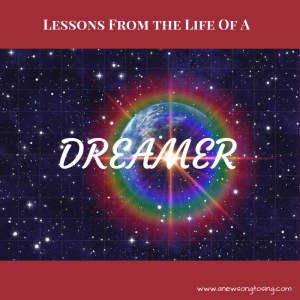
Favoritism in families breeds jealousy and hatred.
The story of Joseph, the Dreamer, begins in Genesis 30 when he was born to his parents, Rachel and Jacob. Jacob’s most beloved wife, Rachel, who was previously barren, doted on her firstborn son by announcing, God has taken away my humiliation (23, MSG). Immediately, Joseph is given great responsibility, especially for a newborn.
Joseph’s story also began with a legacy of jealousy. His mother and her sister, Leah, were both married to the same man. Rachel had been jealous of Leah’s ability to have children with Jacob, which eventually led to a contest of sorts in which both women gave Jacob their maids in order to see who could bear more children.
In addition, Joseph was born into the twisted tale of Jacob and his brother, Esau. Jacob was his own mother’s favored child, and together, they tricked Jacob’s father into giving him Esau’s birthright, which led to years of hatred, death threats, jealousy, and living on the run.
Amidst a family rife with jealousy and conflict, Joseph was birthed as the golden child.
The next time we hear of Joseph, he’s a seventeen-year-old tattletale, reporting bad news about his brothers to Jacob. We’re told that Jacob loved Joseph more than all his sons, because he was the son of his old age (37:3, NASB) and that he gave Joseph a coat fit for a prince.
What is interesting is that Jacob didn’t love Joseph for who he was; Jacob loved Joseph for selfish reasons. Scholars estimate that Jacob was around 90 years old when Joseph was born. Joseph was likely a trophy child, a showcase for Jacob’s virility in his old age (although there was an even younger son, Benjamin).
Joseph’s brothers took note of the favoritism and special treatment, and as a result, they hated him and would hardly speak to him. Ultimately, as we’ll see, they plotted to murder him. Interestingly, their anger was misplaced as it was their father who was to blame.
This story of favoritism in families is not isolated. When one child is favored over other children, conflict, resentment, jealousy, and hatred arise. Children who grow up in households where favoritism is shown—whether they are the favored or the unfavored—experience damaging, emotional effects (including depression) that last well into adulthood.
I’ve seen the devastation among family members when parents favor a child (or children) over others. It rips families apart and leads to decades of heartache. While it certainly doesn’t usually lead to murder, it can lead to sibling rivalries, squabbling over inheritances, and even estrangement. It’s one of the signs of dysfunction that cycles through generations.
Throughout this series, we’ll see how the roots of favoritism and jealousy affected Joseph’s life and dreams, as well as his entire family.


